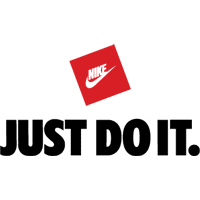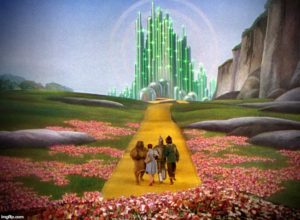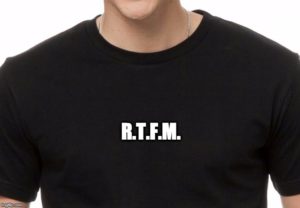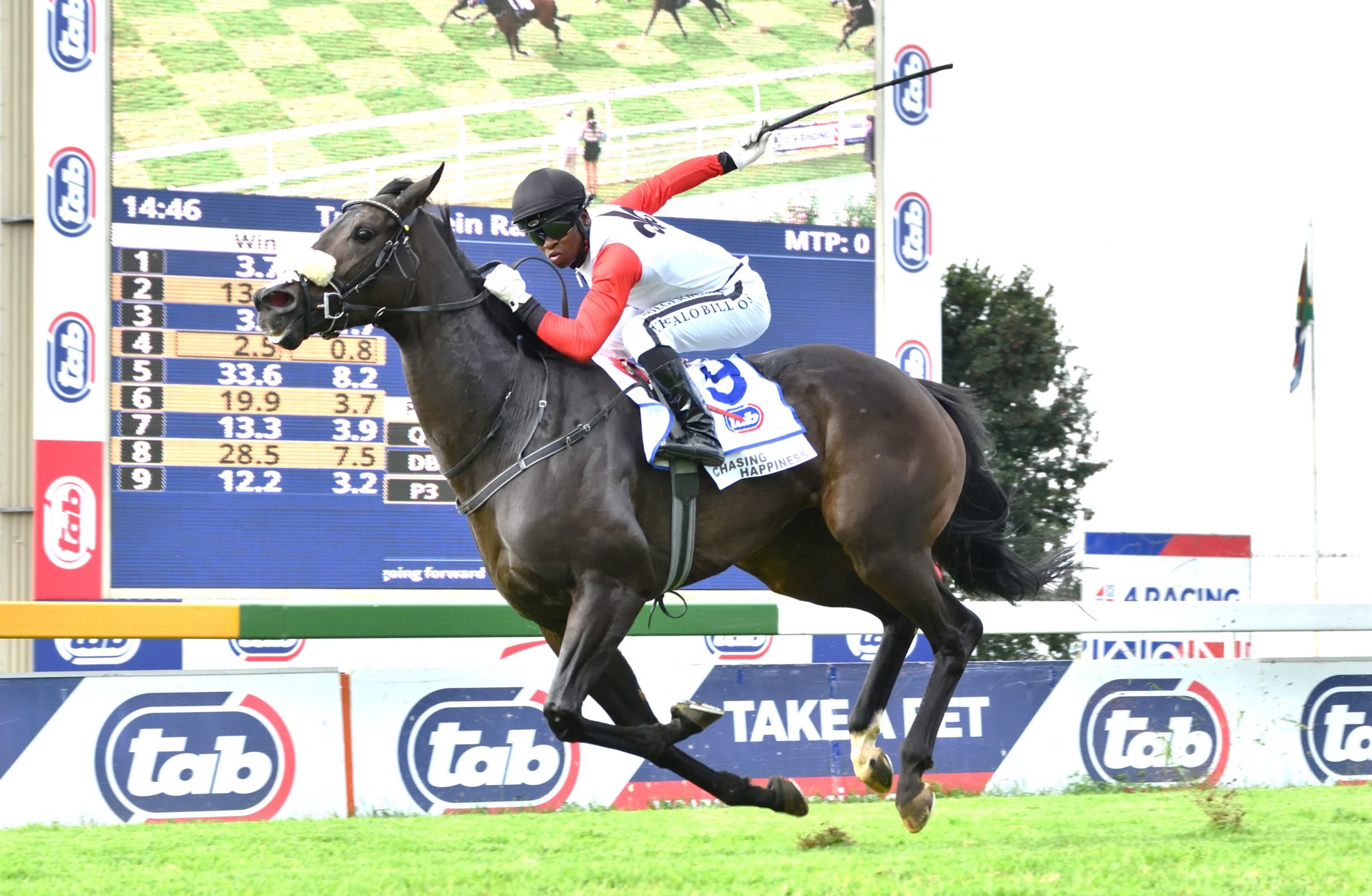This may sound unbelievable to those of us immersed in the daily ups, downs and racing dramas, but most people do not know that racing exists – and the few who do don’t like us very much.
This is a major problem and if we want to remain relevant and in business going forward, we need to become more likeable and we need find a way to join the wider lexicon and find a place in mainstream conversation.
Look Around
When several goes have not worked, my SO usually recommends RTFM (read the ***ing manual). As sage advice goes, it’s annoyingly on point and there is often something useful to be learned from watching people who are good at what they do.
There are not many successful models to turn to for pointers, but the Hong Kong Jockey Club is one that seems to have the formula right. They’ve had two major recent wins in particular – the first was a very widely read blog on the subject of depression and then – at the other end of the spectrum – being awarded a Certificate of Excellence from the international travel website TripAdvisor, after receiving more than 2000 (unsolicited) positive comments about their race tracks and their Happy Wednesday concept in particular.
So what has that got to do with horse racing? Well, everything really as it not only shows that a little shift in positioning can make all the difference, but that we do have something interesting – and important – to contribute to the global dialogue.
Racing B*tch
Hans Ebert, better known to racing folk as the RacingB*tch, is not only the author of the blog on depression, but the creative force behind Happy Wednesday, so I dropped him a line. As always it made for thought provoking conversation.
During his career in advertising, Hans worked as the creative director on some pretty big accounts including McDonalds, which helped shape his work ethic. “It was a highly, highly regimented account. Their Bible was QSCV – Quality, Service, Cleanliness and Value – all their campaigns had to have those values. In those days, you attended these conferences in Chicago and you went to Hamburger University. People used to laugh at me. I used to laugh about it myself that I had to get a degree in French Fries, but in hindsight, it gave us incredible discipline and we actually started to understand the customer. They also made you work behind the counter and put yourself in the position of the staff member who makes $2 a day. When you come out of there, you understand your business, your core values and you are very disciplined. You know your primary customer and your primary and secondary objectives and your strategy is designed with pin point accuracy. After that, every other account you handle, you handle in that same disciplined way. I still have my degree in French Fries. It’s framed.”
“The music business was pretty chaotic. The first thing I noticed was that everyone had all sorts of marketing titles. The problem was all those people were marketing their own idea of the creative product – and generally failing because they didn’t have the experience. What you actually need is someone who can create the creative product for them to market – the Creative Director – and that was me. But I got to work with lots of creative people and learn from the artists’ side as well as the management side. I also learned about the value of sponsorship and the right sponsorship in particular.”
Happy Wednesday

Not many people are going to argue with the CEO – Hans with HKJC CEO Winfried Engelbrecht-Bresges (photo: supplied)
Hans’ mandate was to attract a younger generation to racing. “Winfried (Engelbrecht-Bresges) admits that for him it was imperative to bring in someone from outside because otherwise he’s not going to get an honest opinion – not many people are going to argue with the CEO!”
So what makes it work? “If you’re talking about a younger generation, you’re talking about people who like fashion, who like music, and are generally creative and that’s the group we’ve attracted and keep attracting.”
Live music is a big hit and they have quality live bands attracting fans and enhancing the on course experience. “Initially a few trainers were worried the music would spook the horses, but it’s very well controlled. Today, if we don’t have music for a while (if there’s rain or something), we get the trainers and jockeys saying they really miss having the music.”
“The key is to remember that it happens on a Wednesday night and it’s a good midweek break for many. The first race is off at 7:15 at night. A lot of locals come after work, either for the racing or because they love the music and we also get a lot of tourists. It comes down to creating different experiences at the different venues. The experience at the Beer Garden is different to Adrenaline, and the Gallery is different again, so it caters to a variety of customers.”
Keeping it fun
“We get a lot of visitors from South America and once they know our champion jockey is Brazilian, they love it and that’s who they’ll back. We’ve got Samba girls – I don’t think many race courses have that – and the band is made up of Brazilians, and it’s one big party, but it’s a very international audience and we like to mix things up.”
“Because the jockeys know it’s a friendly audience, they are more relaxed and enjoy the racing more. They get really pumped to be so close to the fans, hear the music and wish they could be with everyone. Obviously they have to put on the show, but if they win, they purposely bring the horses close to the railings to interact with the fans. They high five the fans, stop for photos and the fans love it.”
“When Kei Chiong started to come up through the ranks, a lot of women were following her and would bet on Kei because she was female. When Joao wins, all the Colombians go crazy. These are not big bettors, but it all adds to the fun. We’ve got an up and coming rider in Matthew Poon. He’s called the ‘Poon Train’ and he’s very cute. I can see a lot of people warming up to him next season. We need to create a dance called the Poon Train, so that’s going to be fun. You get to make up stuff like that.”
With the on-course experience working, the product is selling itself and the feedback indicates that a lot of people go racing in Hong Kong thanks to a word of mouth recommendation, usually via a hotel concierge, a fellow hotel guest or perhaps a friend in Hong Kong. Having racing endorsed by the hospitality trade is not only another nod that they are doing something right, but offers yet another platform for reaching people.
Blog
On an entirely different track, Hans’ recent blog has had a huge impact. “I’d lost a few friends in horse racing, one in a particularly tragic angry way, and then the deaths recently of Chris Cornell and Chester Bennington – a month apart – had a huge impact on me. I knew those guys.”
“It inspired me to look at what racing can do in its small way and with the HKJC having its Charities Trust, it paves the way to doing exactly that and hopefully on a global level. It is no secret that racing is a high pressure industry. We have a history of high profile associations with depression and yet it’s something we have not addressed formally. I’ve always been involved in causes, both personally and professionally. In my music days, we’d often get artists to endorse or support a cause and it made them more likeable. That’s a word I’ve used a lot. I think horse racing has to be more likeable and we’ve still got a long way to go. Perhaps if we can take up the cause we will be able to do something not only to help ourselves, but hopefully contribute on a wider scale. And again, that’s something that gets us off the racing pages and into mainstream conversation.”
Image
 “I feel if someone like Simon Fuller or Mark Burnett comes into horse racing it will really enhance the image of the sport because you’re going to attract sponsors and I can’t emphasise enough the importance of the right sponsors. Racing needs a Nike or an Apple. The kind of brand with huge databases and big marketing dollars. Let’s say you’re dealing with Nike and Nike brings Ronaldo to the races – that’s suddenly front page news. It’s not relegated to the racing pages.”
“I feel if someone like Simon Fuller or Mark Burnett comes into horse racing it will really enhance the image of the sport because you’re going to attract sponsors and I can’t emphasise enough the importance of the right sponsors. Racing needs a Nike or an Apple. The kind of brand with huge databases and big marketing dollars. Let’s say you’re dealing with Nike and Nike brings Ronaldo to the races – that’s suddenly front page news. It’s not relegated to the racing pages.”
But how do you attract people from let’s say Apple or Microsoft or Nike? “You can’t. Not right now, because there’s nothing that will attract them to racing. People don’t know about it enough, they don’t think it’s attractive and they don’t think they can go anywhere with it.”
So how do you motivate them? “That’s the challenge. It comes back to making racing likeable. If it’s only about gambling, it won’t fit into the world today. Racing needs to be seen as entertainment as we’re doing with Happy Wednesday. If you look at racing execs, it’s like musical chairs. A guy from Dubai is suddenly in Hong Kong, the guy from Hong Kong is suddenly in the USA, the guy from Australia is suddenly in Singapore, but in reality it’s still the same group of people, which is why there’s not much change.”
Having said all that, at least in Hong Kong I now see a lot more people wanting to be part of Happy Wednesday and from a musician’s point of view, it’s got to the point where playing at the Beer Garden is the epitome of success. So you win those small battles and suddenly the big one opens up and hopefully this is it.”
“I’ve got this thing where I think you’ve got to hit a home run. I’ve hit home runs in advertising and I’ve done it in music, now I want to do it in horse racing. I think that’s going to come from making racing more likeable and creating something that comes from left field and makes people go wow – a racing club did this?”
 “I think if somehow we can get racing to travel with Dorothy and the Tin Man and the Scarecrow and the Lion down the Yellow Brick Road to meet the Wizard, we’re on the right track. I think horse racing’s probably got two different paths – one is the actual racing path with the hard core people and the other part I don’t think has been thought about enough because it’s really about shifting your brain and looking beyond the obvious. It’s taking that yellow brick road path and seeing where it leads.”
“I think if somehow we can get racing to travel with Dorothy and the Tin Man and the Scarecrow and the Lion down the Yellow Brick Road to meet the Wizard, we’re on the right track. I think horse racing’s probably got two different paths – one is the actual racing path with the hard core people and the other part I don’t think has been thought about enough because it’s really about shifting your brain and looking beyond the obvious. It’s taking that yellow brick road path and seeing where it leads.”










